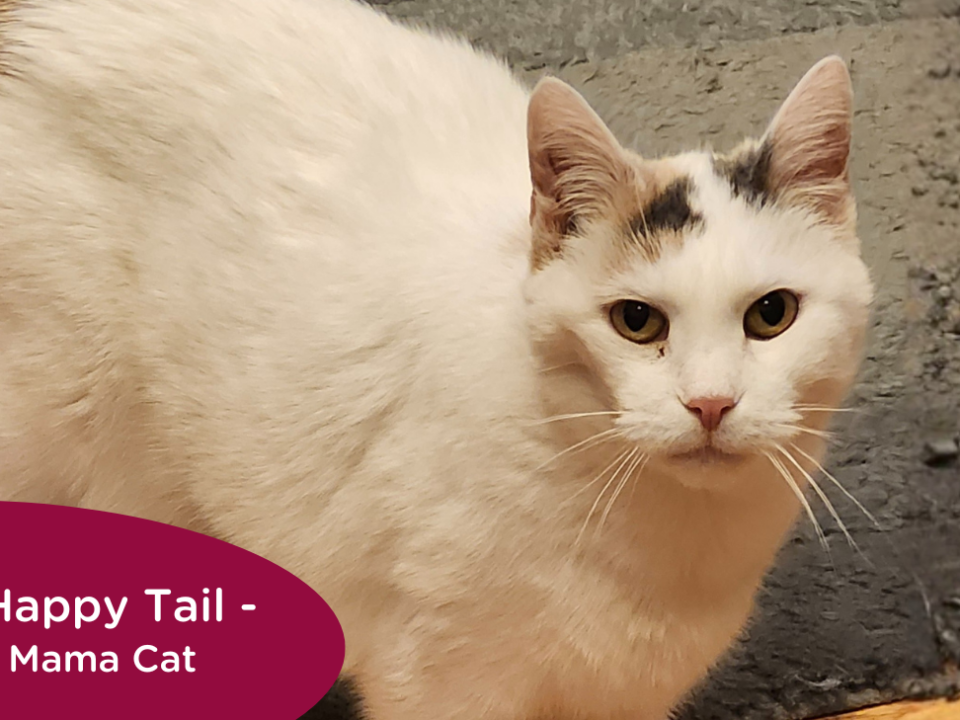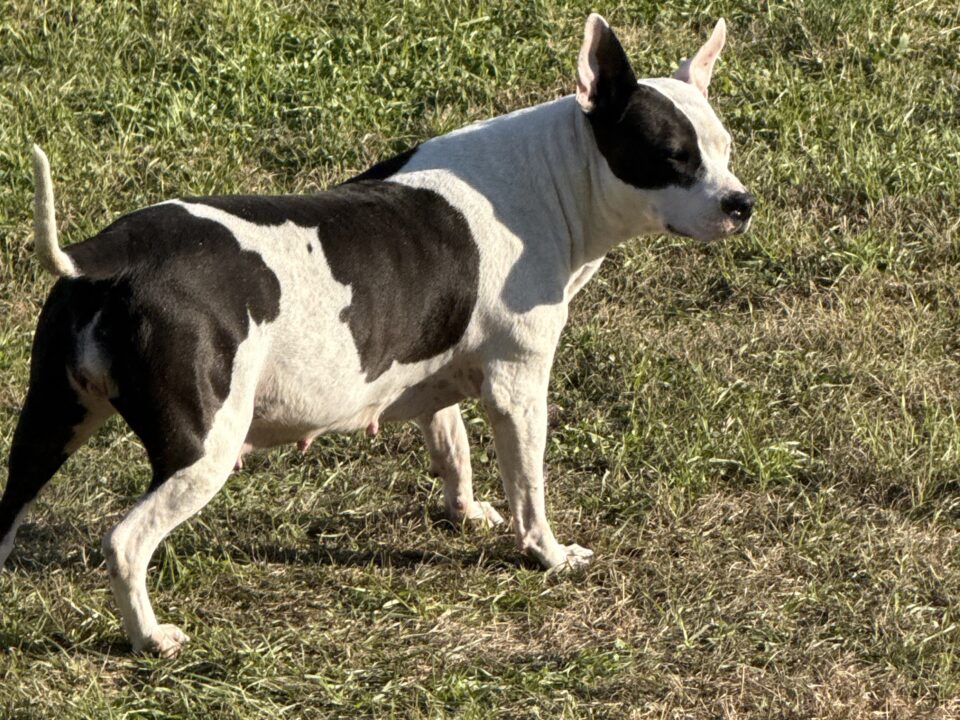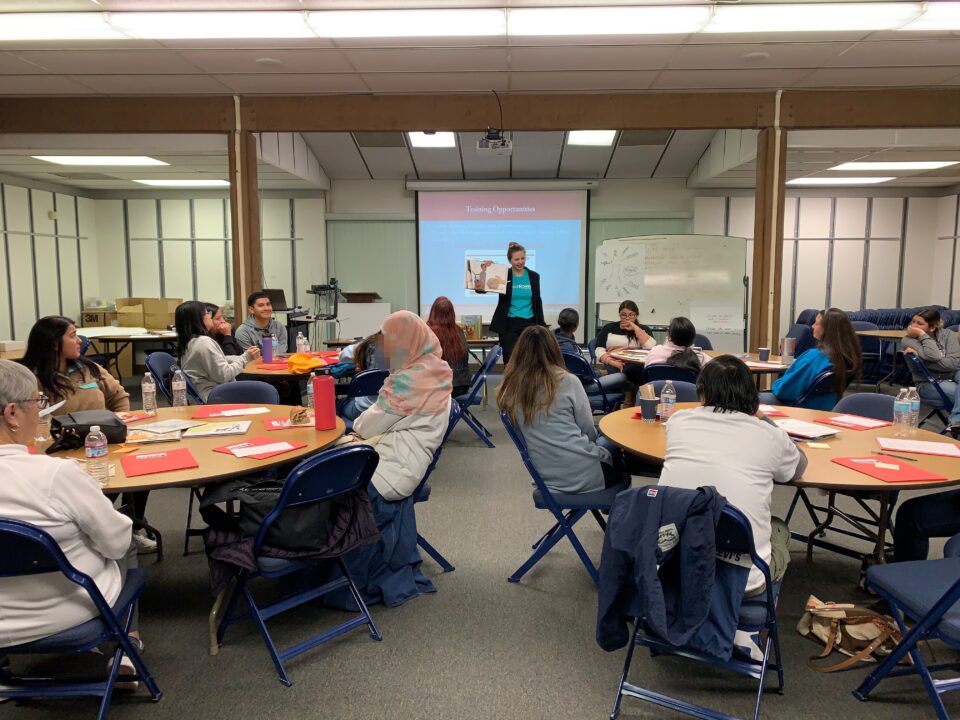20 Years After Katrina: Honoring the Past, Preparing for the Future
August 1st, 2025
By Catharine Mini, Director of Communications –
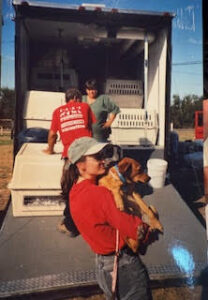 August 29, 2005 – a day that will be etched in our memory forever. Hurricane Katrina, one of the most devastating natural disasters in our history, ravaged the Gulf Coast, taking the lives of over 1,300 people and displacing thousands more people and their beloved animals.
August 29, 2005 – a day that will be etched in our memory forever. Hurricane Katrina, one of the most devastating natural disasters in our history, ravaged the Gulf Coast, taking the lives of over 1,300 people and displacing thousands more people and their beloved animals.
Approximately 250,000 dogs and cats were displaced or died as a result of Hurricane Katrina, including an untold number of other pets such as fish, small mammals, and horses. At the time, many officials refused to let animals (even service dogs) on evacuation buses or airlifts, forcing families to leave their animals behind. It was reported that 44% of the people who refused to evacuate during Katrina did so because they could not evacuate with their animals: their family.
One donor remembers the desperation of the moment: “I saw a small dog jumping up and down in front of an evacuating bus during Katrina with the little boy owner so upset he was sick. I will never get that image out of my mind.” This heartbreaking scene highlights the importance of keeping pets with their families during disasters and preserving the human-animal bond.
RedRover, formerly United Animal Nations (UAN), has been dedicated to protecting animals in crisis for nearly four decades. When Katrina struck, we sprang into action, deploying nearly 400 trained volunteers to four emergency animal shelters in Mississippi, Louisiana, and Texas. Our mission was clear: provide critical care and shelters to animals in need affected by Hurricane Katrina and Hurricane Rita.
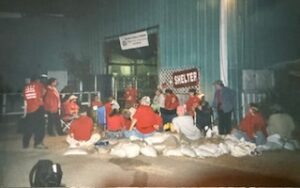 In our three-month-long emergency responses to both Hurricane Katrina and Hurricane Rita, our team of more than 400 volunteers and 15 veterinarians from 40 states and Canada cared for and rescued 2,100 animals in 6 locations across those 3 states. Hundreds more people made donations that enabled us to purchase needed supplies, equipment, and medicine, and to support animal agencies that were decimated by the storm. In addition to our aid on the ground, our team disbursed $255,000 in hurricane relief grants to bring additional help to animal victims and the people who love them. And despite the destruction around us on the ground, hope was found: more than four dozen dogs were reunited with their owners, and those who weren’t reclaimed were transferred to long-term foster homes and given a second chance with a loving family.
In our three-month-long emergency responses to both Hurricane Katrina and Hurricane Rita, our team of more than 400 volunteers and 15 veterinarians from 40 states and Canada cared for and rescued 2,100 animals in 6 locations across those 3 states. Hundreds more people made donations that enabled us to purchase needed supplies, equipment, and medicine, and to support animal agencies that were decimated by the storm. In addition to our aid on the ground, our team disbursed $255,000 in hurricane relief grants to bring additional help to animal victims and the people who love them. And despite the destruction around us on the ground, hope was found: more than four dozen dogs were reunited with their owners, and those who weren’t reclaimed were transferred to long-term foster homes and given a second chance with a loving family.
For many pet owners, the trauma of Katrina was compounded by the uncertainty of their pets’ fate. Our response helped alleviate some of that burden. “People on the ground (evacuees) had a lot to deal with and didn’t have to worry about their pets once they were in our care, and came for cuddles,” says Karen Brown, a former RedRover Program Director, recalling our on-the-ground aid supporting people and animals affected by Katrina.
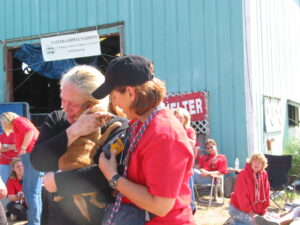 One of our donors, affected by the natural disaster herself, shared: “I evacuated from Katrina with my two dogs and I understand how tough it is to wonder if you will have a home to go back to and finding a safe space for your pets to keep them with you.” Her first-hand experience serves as just one reminder of the value our RedRover Responders volunteers bring to animals and their people in times of crisis.
One of our donors, affected by the natural disaster herself, shared: “I evacuated from Katrina with my two dogs and I understand how tough it is to wonder if you will have a home to go back to and finding a safe space for your pets to keep them with you.” Her first-hand experience serves as just one reminder of the value our RedRover Responders volunteers bring to animals and their people in times of crisis.
But disaster response work, while incredibly rewarding, is emotionally demanding. Karen, recalling her time working for RedRover alongside our volunteers, recalls her experience during Katrina and how “someone bought a chair massager for employees and I saw a colleague get in the chair and start crying.” Despite the challenges, both physical and emotional, our team persevered, driven by their dedication to saving as many lives as possible.
As we responded to Katrina, it became clear that a more focused effort would improve animal disaster response. Out of this realization, the National Animal Rescue and Sheltering Coalition (NARSC) was formed. RedRover is proud to be a founding member of NARSC, which aims to improve response coordination, develop emergency response best practices, and improve the field.
As part of our participation, RedRover actively participates in NARSC quarterly meetings, phone calls, and nightly coordinating calls during active disasters. In addition to helping national disaster response, participating in NARSC has been key in helping the RedRover Responders program stay an important player in natural disaster response.
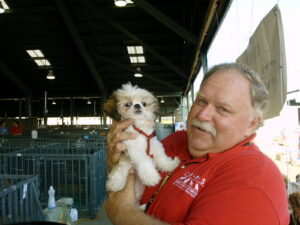 Looking back on the past 20 years, we recognize the impact we’ve been able to make together as a community. We’ve honored the lives lost during this tragic natural disaster and learned valuable lessons that have shaped our approach to disaster response. “We knew there would be growing pains, but knew the benefits of structure and protocols in the long run,” Karen explained.
Looking back on the past 20 years, we recognize the impact we’ve been able to make together as a community. We’ve honored the lives lost during this tragic natural disaster and learned valuable lessons that have shaped our approach to disaster response. “We knew there would be growing pains, but knew the benefits of structure and protocols in the long run,” Karen explained.
Fast forward to today, and the RedRover Responders team continues to provide vital emergency sheltering assistance for animals displaced by natural disasters or rescued from cruelty situations. With the help of more than 4,800 volunteers, our organization stands at the ready to be there for people and animals when disaster strikes.
Another one of our donors reminds us of the significance of every life changed by crisis: “It matters to the one you save.” This simple yet profound message underscores the importance of RedRover’s work.
Today, RedRover is better equipped than ever to respond to disasters and support animal welfare organizations in need. And it’s all thanks to donors like you! Your support gives us, our volunteers, and the families we aid the hope and resilience to continue deploying on-the-ground support when disaster strikes. Together, we can continue to make a difference in the lives of animals and their families.
As we commemorate the 20th anniversary of Hurricane Katrina, we remember the lives lost and the lives saved. We’re grateful for the opportunity to serve, and we’re honored to continue this truly important work. Thank you for standing with us in the face of disaster. Together, we’ll continue moving forward, driven by dedication, compassion, and hope.

